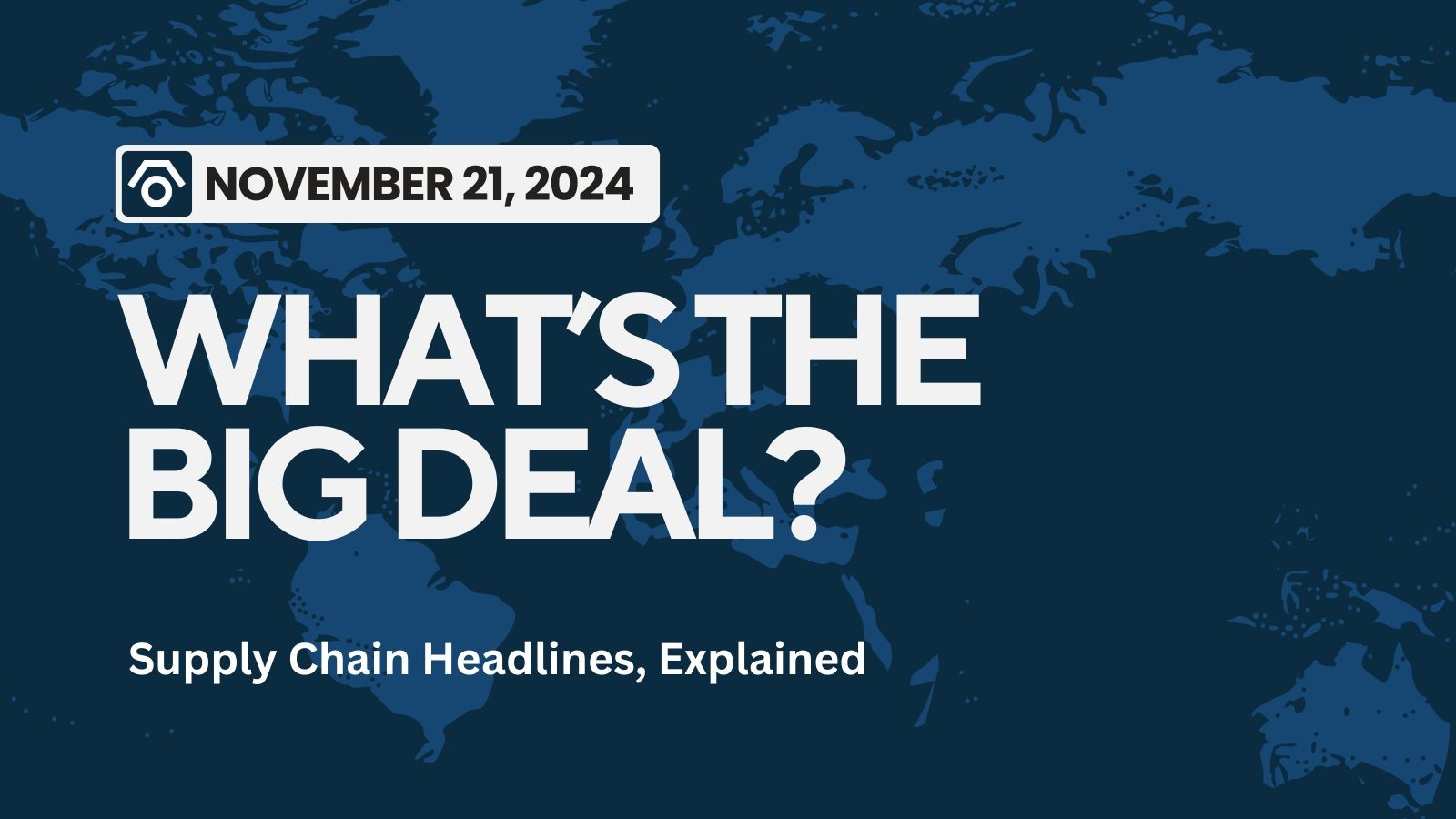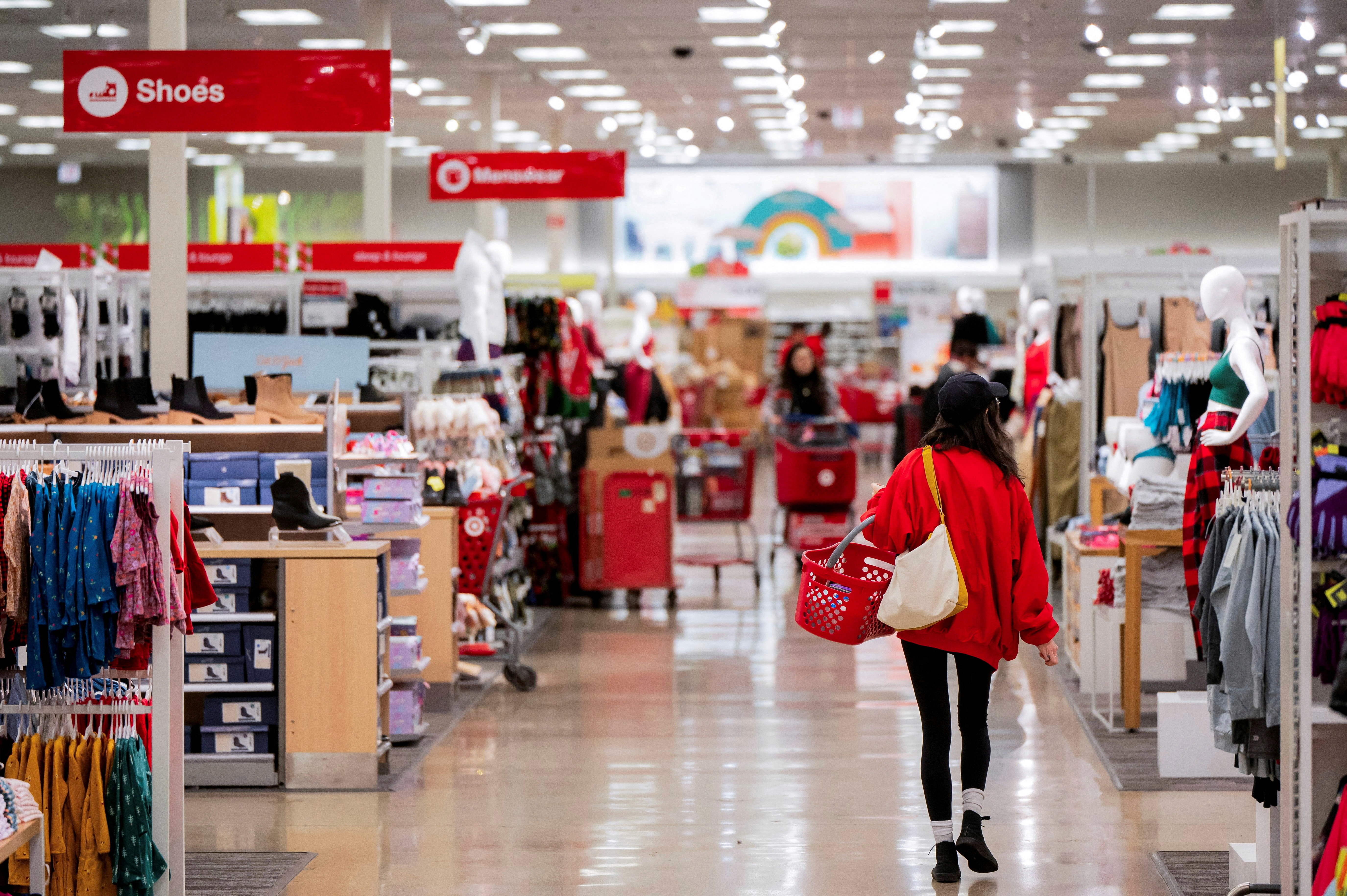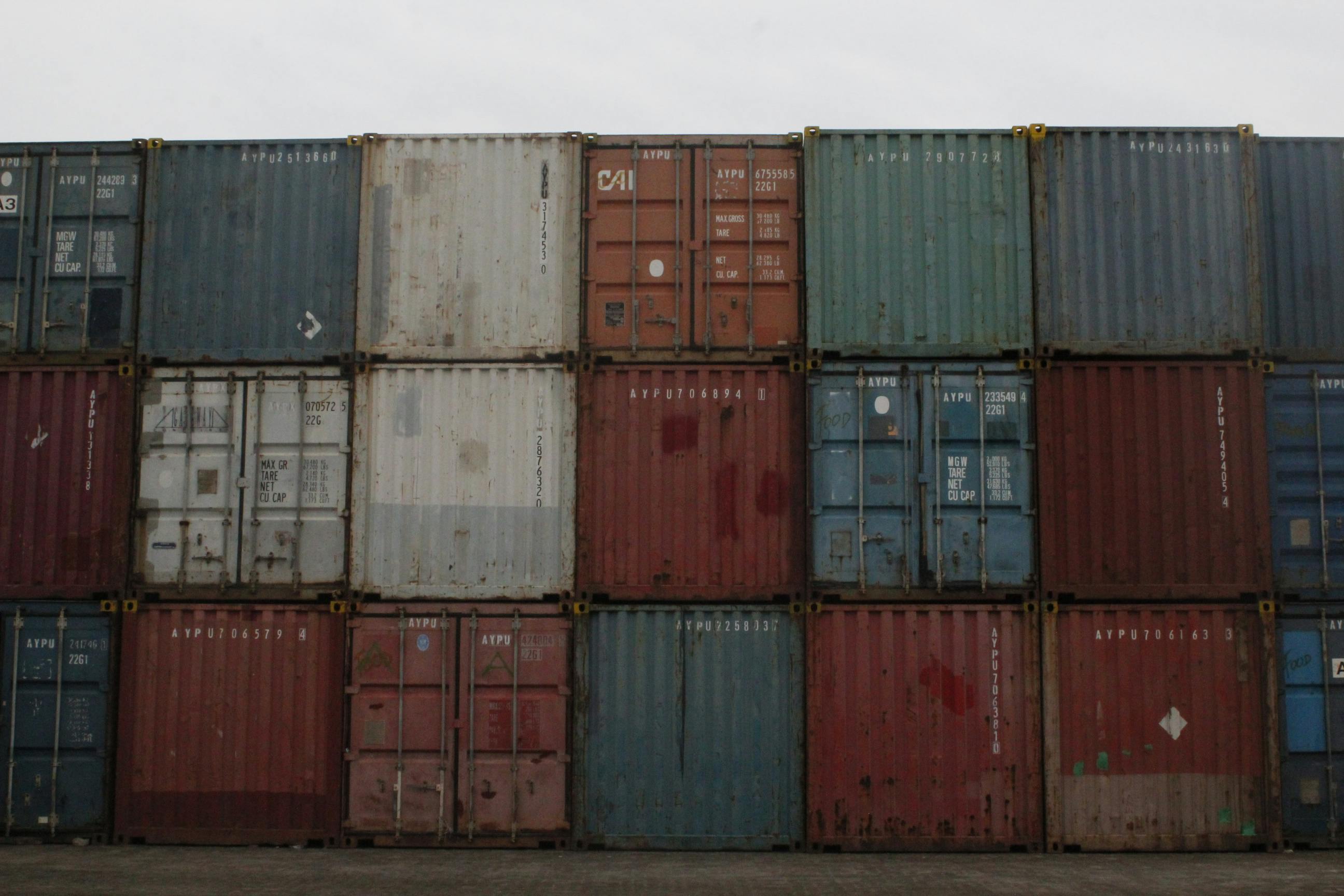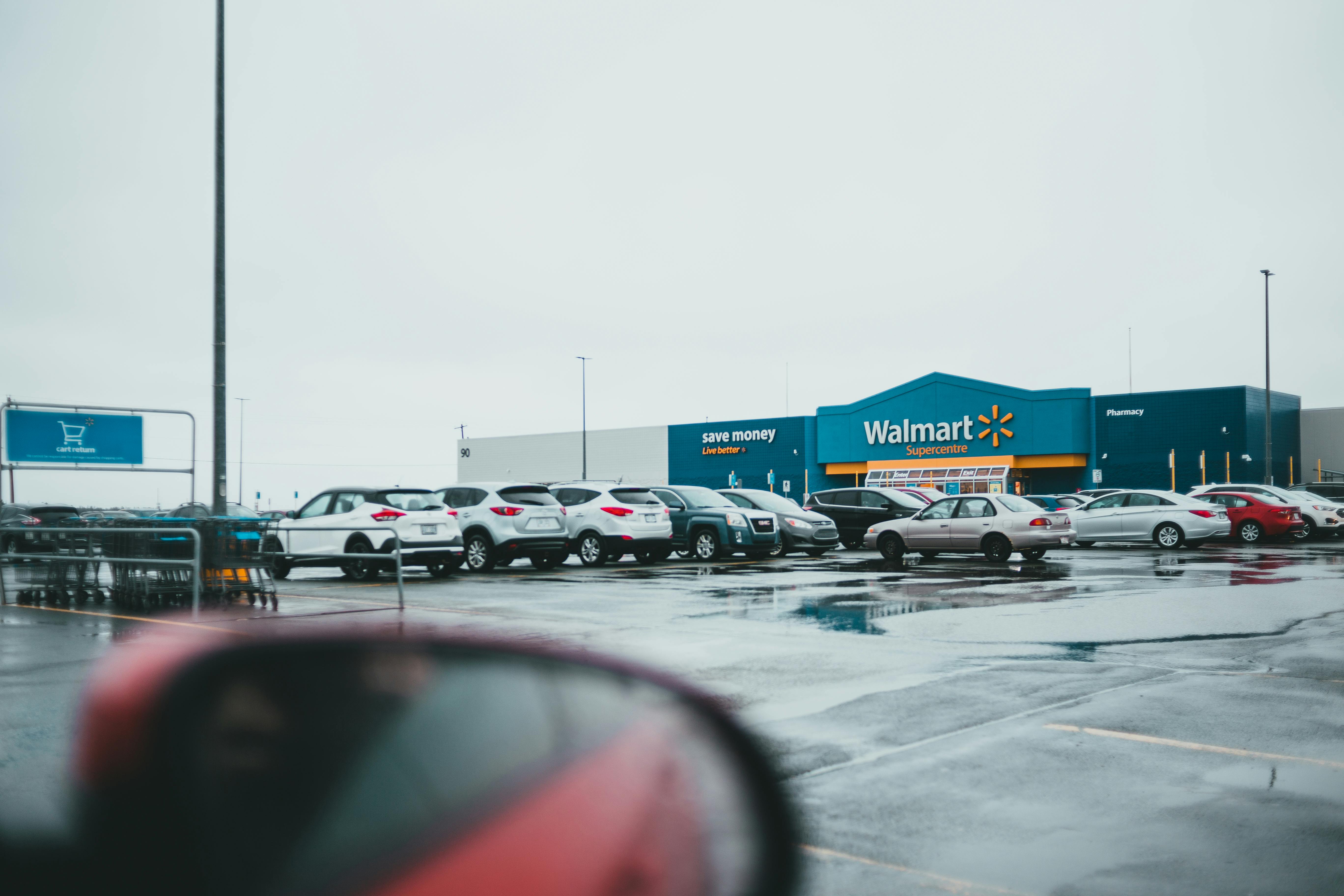Industry
What's the Big Deal? Nov 21th Supply Chain News
Truckers getting scammed (and not just at the pumps), USMCA on shaky ground, and Walmart's masterclass in logistics efficiency

Abdul
·
Nov 21, 2024
·
5 min read

November 21st Supply Chain Highlights: Trade Updates and Logistics Innovations
Welcome back to What’s The Big Deal?—your weekly guide to the top supply chain stories and why they matter. This week, we’re diving into trucking scams, Canada’s USMCA shakeup and a masterclass in logistics efficiency from Walmart.
The big deal this week:
Trucking Scams and New Rules: Drivers Are Getting Robbed (and Not Just at the Pump)
Target’s Tough Quarter: Blame Shoppers and Ports
Cargo Crunch at Canadian Ports: Dockworkers Back at Work
A Masterclass in Logistics Efficiency: Walmart Slashes U.S. Delivery Costs by 40%
Canada’s Trade Debate: USMCA on Shaky Ground
Trucking Scams and New Rules: Drivers Are Getting Robbed (and Not Just at the Pump)

It seems that some companies in the trucking sector took the phrase “driving profits” a little too literally. Drivers have been duped by companies like RivX, which dangled dreams of automated trucks and passive income, only to leave them with empty wallets. Regulatory bodies, including the Federal Trade Commission (FTC) and Florida Attorney General, have stepped in to address these fraudulent schemes, launching lawsuits to recover losses.
Adding to the shakeup, new trucking regulations effective November 18 are tightening the screws. State licensing agencies now must downgrade commercial driver’s licenses for drivers flagged as ‘prohibited’ in the FMCSA’s Drug & Alcohol Clearinghouse. This means no more sneaky trips behind the wheel for drivers who fail drug or alcohol tests until they complete the required Return-to-Duty process.
What's the big deal?
Truckers are the backbone of the supply chain. If they’re sidelined by scams or pulled off the road due to new rules, it’s a ripple effect: fewer drivers, slower shipments, and, yes, more expensive avocados. For one, this is a wake-up call for drivers and fleet managers to vet too-good-to-be-true offers like RivX. On the regulatory side, the new FMCSA rules are a step toward making the roads safer for everyone. But let’s not sugarcoat it—these changes add another layer of compliance headaches for fleet managers. For the rest of us? Let’s maybe give a little extra patience to the folks keeping our shelves stocked.
Read more: The Sun
Target’s Tough Quarter: Blame Shoppers and Ports

Target Corporation had a rough fiscal third quarter, missing expectations on earnings, revenue, and comparable sales. The culprits? Cautious consumer spending and lingering supply chain disruptions, including recent port strikes. Target’s stock took a hit, leaving analysts and investors wondering how long this downturn might last.
What's the big deal?
When a retail giant like Target stumbles, it’s a litmus test for the broader economy. For shippers and logistics providers, it’s a reminder that consumer spending drives demand, and any slowdown ripples through supply chains. On the bright side, this could nudge companies to double down on supply chain efficiency, especially in last-mile delivery.
Read more: MarketWatch
Cargo Crunch at Canadian Ports: Dockworkers Back at Work

Canada’s ports are back in the headlines, but not for the reasons shippers hoped. After weeks of labour disruptions, dockworkers are back on the job, but ports like Vancouver and Montreal are grappling with massive cargo backlogs.
The logjam is forcing shippers to wait longer for goods or reroute through alternative ports. The backlog has left companies scrambling to reroute shipments or simply sit tight and hope for the best. And as we all know, “sit tight” isn’t exactly a winning logistics strategy.
What’s the Big Deal?
Port congestion doesn’t just slow down supply chains; it can grind them to a halt. For shippers, it’s the ultimate test of patience. Longer wait times mean delayed deliveries, unhappy customers, and mounting costs. It’s a stark reminder of how fragile the supply chain is, and how important it is to have a contingency plan (or two).
Read more: Maritime Executive
A Masterclass in Logistics Efficiency: Walmart Slashes U.S. Delivery Costs by 40%

Walmart is proving yet again why it’s the reigning champ of retail logistics. By leaning into automation and optimizing delivery routes, the company has slashed U.S. delivery costs by a staggering 40% per order—for the third quarter in a row! From automated systems to smarter driver routes, these changes not only help Walmart’s bottom line but also its customers.
What’s the Big Deal?
This is a masterclass in logistics efficiency. Walmart’s focus on automation and route optimization shows that investing in tech and processes pays off big time. For competitors, it’s a wake-up. If you’re not investing in tech and efficiency, you’re falling behind. For shoppers, this means faster service and maybe even lower prices (fingers crossed).
Read More: Supply Chain Drive
Canada’s Trade Debate: USMCA on Shaky Ground

Canada is taking a hard look at its trade agreement with the U.S. and Mexico, called USMCA. Ontario Premier Doug Ford and others are worried that Mexico might be used as a shortcut for bringing cheaper goods from China into North America, which could hurt Canadian businesses and jobs. There’s also worry about how U.S. trade rules might change after the election. Some Canadian leaders are even saying Canada should skip Mexico altogether and make a new trade deal just with the U.S.
What’s the Big Deal?
This isn’t just about politics— it’s a big deal for supply chains that depend on USMCA. For Canadians, it’s about keeping jobs safe and protecting local businesses from unfair competition. For Americans, changes to USMCA could mean more expensive goods, slower shipping, and problems for industries like farming and manufacturing that rely on smooth trade with Canada and Mexico. If Canada and the U.S. make their own deal without Mexico, businesses and shoppers on both sides could see higher prices and longer wait times for products.
Read more: Associated Press
Final Thoughts: Why It All Matters
This week’s stories highlight the constant need for adaptability and innovation in supply chains. From scams and regulations in trucking to international trade tensions and delivery cost savings, the common theme is clear: Stay informed, stay agile, and don’t be afraid to invest in better processes.
For shippers and carriers, it’s all about planning ahead and having backup strategies. For businesses, it’s about balancing cost-cutting with innovation. And for the rest of us? Maybe give a little extra credit to the people making sure our packages, groceries, and holiday gifts get to us (eventually).
Until next week, keep asking: What’s The Big Deal?
About Cartage
Cartage delivers AI-managed transportation services to small and medium sized shippers across North America. Explore a future of logistics you don't have to manage at www.cartage.ai.
Put your freight operations on autopilot.
Try AI-managed transport today







